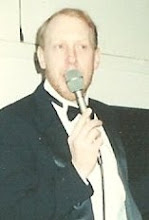
My job at Marketing Messages calls for a vast number of differing skills. I do voice-overs, of course, but I also produce and engineer recording sessions involving other voice-over professionals; I edit recordings; I mix recorded voice with music for our Messages-On-Hold; I put together music-only (Music-On-Hold) productions; and a few other more peripheral duties (shipping, drinking coffee, swearing.)
I mentioned editing and mixing. Those are the two jobs that occupy the greatest amount of time on our schedule, and everybody on the production team performs these tasks at one time or another. We use more than one editing platform (for instance, ProTools, Adobe Audition and Sound Forge, to name a few of those most often used) and, of course, it pays for us to know as much as possible about what can be done within each editing platform. So, we sometimes play around with different functions in order to familiarize ourselves with them, in case we should need that knowledge for a future job.
One of the cooler - or, at least, odder - functions available is the ability to reverse a recording.
Some of you are old enough to remember the furor over reversed recordings during the 1960's. Rumors of Paul McCartney's death came about because of "evidence" heard in some Beatles recordings. Supposedly, such things as "Paul is a dead man" and "Turn me on, dead man" could be heard when certain song segments were played backwards. More recently, performers as diverse as Pink Floyd, Judas Priest, Queen, and Slayer have been accused of using "backmasking" as a way of promoting unseemly and anti-social behaviors on the part of their fans.
(For more on backmasking in popular music, please see the excellent Wikipedia article on same.)
However, for our purposes here, let's put aside conjecture about the passing of quite-obviously-alive British musicians and other such nonsense. We experimented with backwards recordings because it was a way to familiarize ourselves with our recording tools, and because it presented us with interesting vocal exercises that might increase our proficiency as script readers.
Also, it was great fun.
Let me give you some examples. To begin, I've written a short pithy play about the eternal struggle of feline and canine in regards to man, entitled "Cat Dog".
CAT DOG
Setting: The South Of France During The Time Of Napoleon
Cast (in order of appearance)
Cat ................................ Sarah Colvin
Man ................................ Jim Sullivan
Dog ................................ John Hutchinson
[forward recording - Cat Dog]
Now, I'll reverse the recording.
[reverse of previous recording]
What we would then do was practice saying the reversed versions of the words until we felt we had them as close as possible to what we had been hearing on the reversed playback. Then, we would record ourselves saying those reversed words, such as we've done here...
[forwardly-recorded reverse of Cat Dog]
... and, finally, we would reverse that recording to see how close we got to the originals.
[reversed recording of forwardly-recorded reverse Cat Dog]
As you might imagine, it was not only a learning experience, but also involved us cracking up quite a bit. There's just always something comically askew with the final product, no matter how good a job is done in mimicking the backwards speech.
Now that you know the process involved, I'll play you a longer example, entitled "I Like Chinese Food". Along with my co-workers, Sarah and Hutch, I've voiced some words and whole sentences, reversed those, practiced saying them backwards, then recorded the backwards pronunciations, reversed those... well, here's an example of the entire process strung together in one continuous piece.
[I Like Chinese Food!]
We indulged in this sort of silliness quite often for a short while. As I say, it really helped us to learn more about the recording processes and it also trained us, as speakers, to verbalize odd constructions, which in turn made us less likely to stumble on unusual words or local pronunciations that appeared in actual scripts.
The weirdest thing we ever encountered while doing this was finding out that asparagus equals cigarettes. That is, when you record someone saying "asparagus", and then reverse it, the person is then saying "cigarettes". And if you record someone saying "cigarettes", then reverse that, the person says "asparagus".
Don't believe me? Take a listen.
[Asparagus? Cigarettes! Cigarettes? Asparagus!]
We all found it incredibly odd that something so healthy for you, when spoken and then reversed, could become something so hideously bad for you. It literally was an example of the reverse of a word being an actual reverse of it, healthwise.
When we discovered this, we all thought it would be incredibly funny if we found out that a whole bunch of other words, when reversed, would also be the reverse of the original word in a moral or health sense, but, alas, we've never come up with another that is so startlingly clear (although the fact that "spare ribs" is the same backwards and forwards is pretty interesting.)
If you have the ability to do reverse recordings, and you come up with a funny one, please send it my way. I'd love to hear it.
And that's all I've got for you today. Having completed this, I'm now going to do what I usually do after I finish writing. I'm going to go outside and smoke asparagus.
See you soon.





